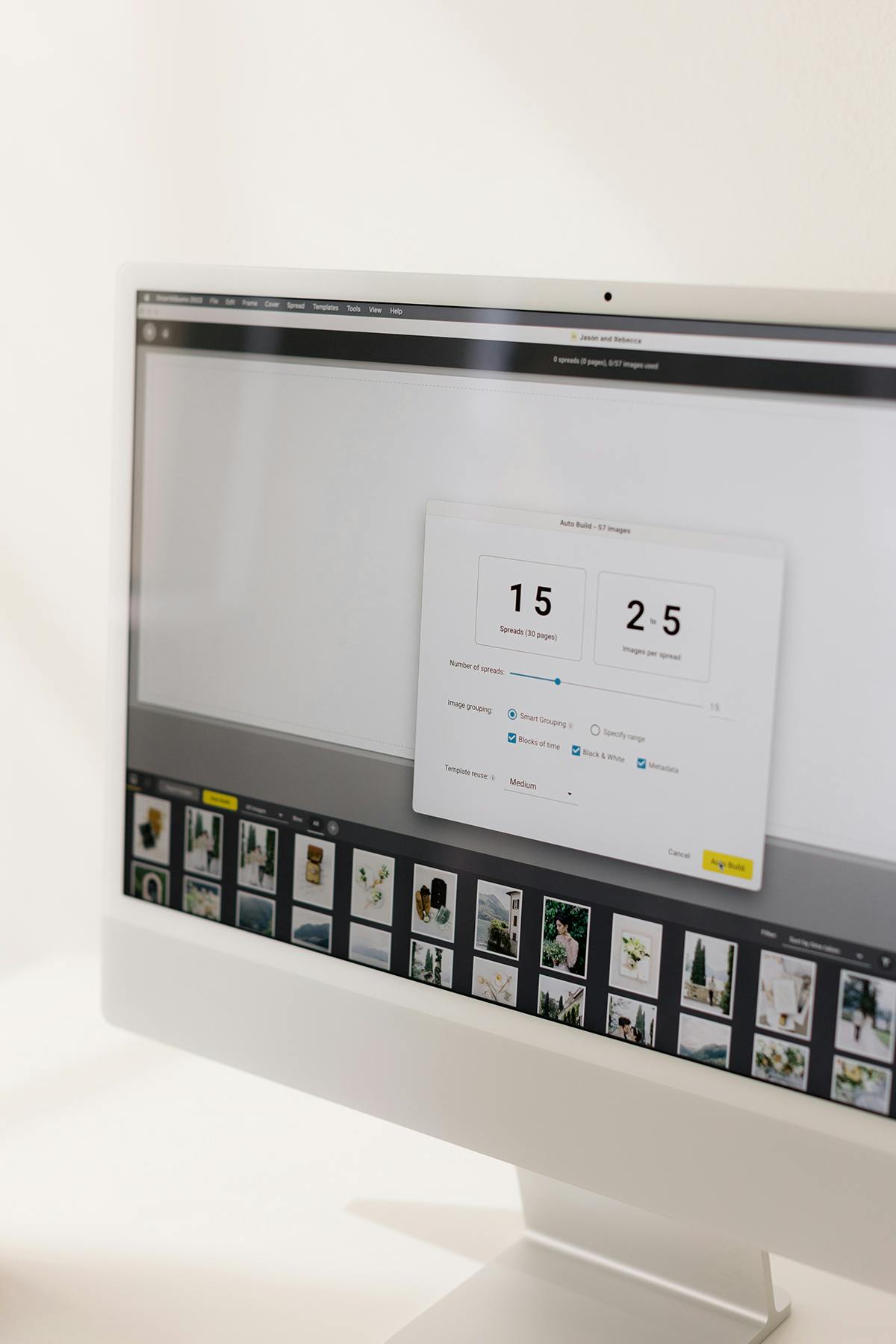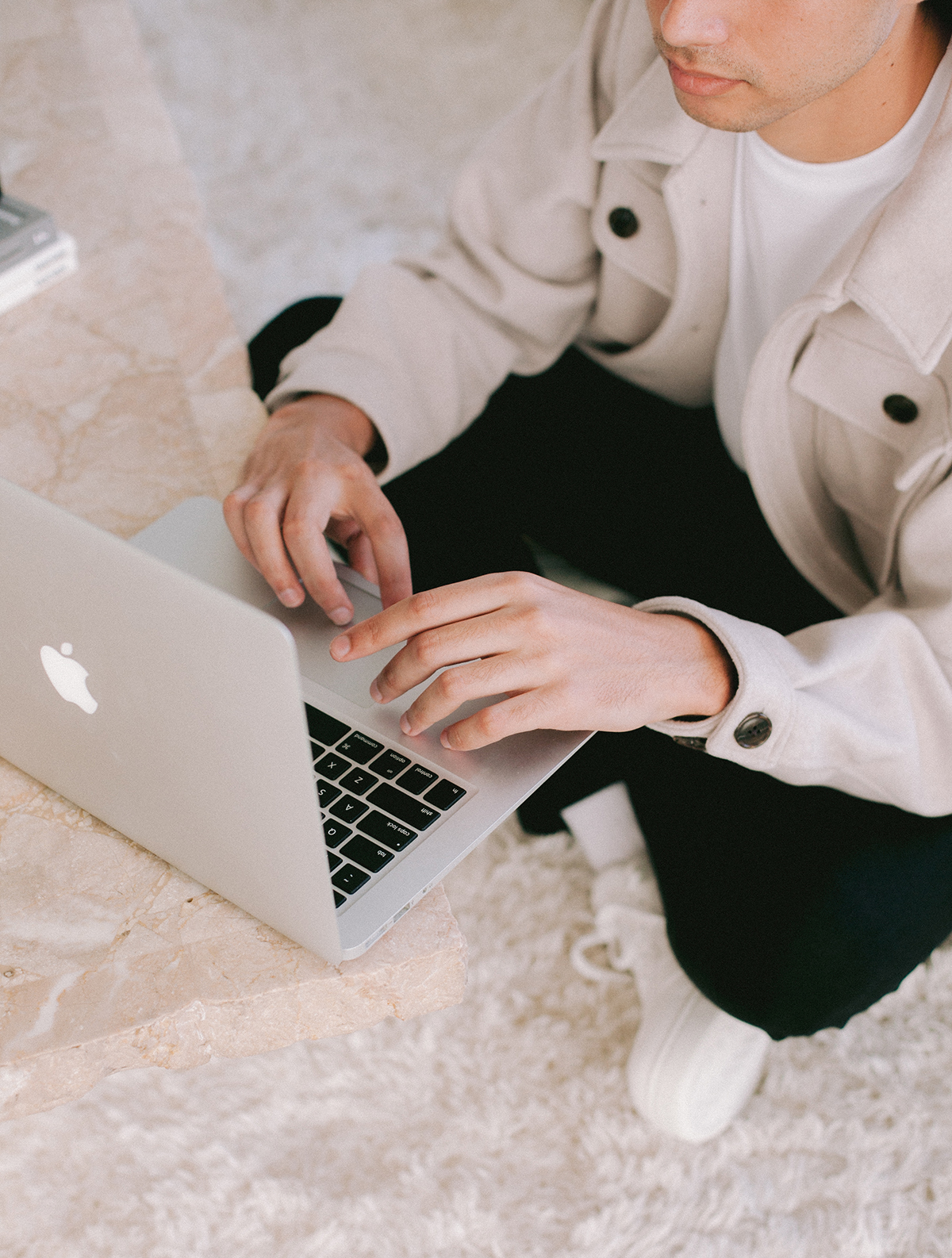AI and Photography. Is it helping our industry or hurting it?
Photography has come a long way since its inception. Our industry has made massive strides from sepia-toned daguerreotypes to sleek modern-day mirrorless cameras. But with the advent of technology, photography has taken a bold new step. It's time to talk about AI and its impact on photography.
AI, or Artificial Intelligence, is the buzzword of the decade, maybe even the century. In photography, its usage has revolutionized how we capture and edit images. AI-powered cameras are fast becoming a norm, and they come with many features that simplify the photographer's job.

AI technology can automatically adjust camera settings like aperture, shutter speed, and focus. They can even track the subject in-frame and change settings accordingly. Moreover, the technology learns from its previous mistakes and improves its performance over time.
It's not just the initial capture that's changing — AI is altering how we edit our photos. With machine learning algorithms, AI-powered software can analyze images and suggest the best possible edits. It's so powerful that AI can even create a whole new image from scratch using just a few inputs. AI-powered editing software is fast becoming a mainstay in the world of photography, and it's not hard to see why.
AI is also making photography accessible to a wider audience. With the advent of smartphones, everyone is a photographer. Most smartphones now come with AI-powered cameras that can take professional-quality photos at the touch of a button. Even amateur photographers can now capture stunning images that rival those taken by professionals.
One of the biggest advantages of AI is its ability to recognize and optimize images based on various factors. The inbuilt algorithms can detect objects, faces, and even emotions, enhancing images accordingly. For example, AI-powered cameras can now detect the presence of a face in a shot and adjust the focus and exposure accordingly. Similarly, AI-based photo editing software can recommend the best filters, crop options, and color adjustments.
Another area where AI has made a significant impact is in the field of image recognition. AI algorithms can now recognize objects and people in an image, making it easier to categorize, tag, and search for them. This has made managing large photo libraries much more efficient.

AI in photography: Will photography still be a relevant art form?
As AI technology advances, it's no surprise that many people are questioning the future of photography. AI technology is increasingly adept at capturing awe-inspiring photographs, challenging even the best photographers in photo competitions. But despite all this, photography will always remain a relevant and essential art form, serving as a vehicle for capturing important memories and expressing creativity.
Why? For starters, photographs capture more than just a moment in time - they capture memories. There's something about looking at a photo taken years ago that can transport you back to that exact time and place, the sights, the smells, the feelings. If the moment never happened — if the image was created using a few prompts to describe what we should be seeing — then there is no real emotion attached to the image. A photo of a wedding, birthday party, family vacation, or loved one is much more than just a series of images. They are pieces of our lives and hold a special significance that cannot be quantified.

The value of photography against AI is about more than just memories. Photography is a study of emotion and artistry. While AI may be able to take a technically flawless photo, it lacks the human touch and creativity that makes a photo truly special. There's a reason that people pay for professional photographers when they want to capture important events in their lives — a skilled photographer has an eye for emotion and beauty that goes beyond what any machine can comprehend.
Photography is also important for its ability to capture history and cultural significance. Photographs have a powerful way of documenting social and political changes and everyday life in a way that words cannot. From iconic photographs of historical events to personal snapshots of daily life, photography helps us remember and learn from our past.
Photography provides a creative outlet for artists and individuals alike. Whether it's capturing the beauty of nature, telling a story through a series of images, or experimenting with different techniques and styles, photography allows for endless possibilities for self-expression and creativity.
There are limitless creative possibilities with photography. With a camera, you can experiment with composition, lighting, color, and more to produce stunning images unique to you. Yes, AI may be able to generate aesthetically pleasing photos, but it will always lack the personal touch and creative vision of a human photographer. The ability to assess an environment and choose the exact style, framing, and light settings that reflect the essence of the moment and how it feels to be there in that second ensures our profession remains out of reach from AI.
AI will never replace the significance of photography as an art form. Photos are not just images — they are a way of preserving our memories and emotions and capturing the beauty of the world around us. As long as there are humans, there will always be a need for photography.
AI tools for photographers

Pixellu SmartAlbums
Pixellu SmartAlbums is a powerful photo album software designed to save photographer time while helping them earn more money. It uses AI technology to simplify the album design process, allowing photographers to generate an album in just a few clicks.
Key Features:
- AI technology that automates album design.
- Photographers can create entire albums in just a few clicks.
- SmartAlbums uses machine learning to create stunning spreads based on your camera metadata to ensure the story and the image pairings actually make sense.
- A drag-and-drop interface that makes it easy to customize album layouts.
- A range of album sizes and styles to choose from.
- The ability to integrate with popular print labs for easy album printing.
- Built-in cloud storage for secure backup and collaboration.
- Customizable templates and design settings for complete control over the album design process.
{{banner}}
Luminar Neo
Luminar Neo is a powerful AI-powered editing software designed for photographers, artists, and designers who want to take their images to the next level. Its intuitive interface and numerous advanced features make it a favorite among photography professionals.
Key Features:
- A wide range of editing options, including color adjustments, layers, and filters.
- AI-powered features such as Sky Replacement and Accent AI 2.0 for automatic adjustments.
- Customizable workspace and support for Photoshop plugins.
Topaz Gigapixel AI
Topaz Gigapixel AI is a game-changing tool for photographers who want to enlarge their images without compromising quality. It uses advanced AI algorithms to enhance and upscale photos, making them suitable for printing or digital use.
Key Features:
- Advanced AI algorithms that retain image quality while scaling up images.
- Batch processing capabilities for large-scale projects.
- Support for various file formats, including RAW and TIFF.
AfterShoot
AfterShoot is an AI-powered software for processing and organizing images quickly and efficiently. Its automatic features help photographers save time and streamline their workflow.
Key Features:
- Automatic image import and organization based on metadata.
- AI-powered features such as Smart Culling for fast and effective image selection.
- Batch processing capabilities for large-scale projects.
Remove.bg
Remove.bg is an AI-powered software that makes background removal a breeze. Its intuitive and user-friendly interface makes it ideal for photographers needing to remove backgrounds from their images quickly.
Key Features:
- AI-powered background removal that produces high-quality results.
- Batch processing capabilities for large-scale projects.
- Integration with popular software such as Adobe Photoshop and Lightroom.
Generated.Photos
Generated.Photos is a unique AI-powered software that creates realistic and customizable stock photos. Its advanced algorithms can generate images for various industries and niches, making it a valuable resource for photographers and designers.
Key Features:
- Advanced AI algorithms that generate realistic and customizable images.
- Customizable parameters such as facial features, clothing, and backgrounds.
- Support for various file formats, including PNG and RAW.
Topaz DeNoise AI
Topaz DeNoise AI is an AI-powered noise reduction software that helps photographers achieve cleaner and sharper images. Its advanced algorithms can reduce noise while retaining image details.
Key Features:
- AI-powered noise reduction that produces high-quality results.
- Batch processing capabilities for large-scale projects.
- Support for various file formats, including RAW and JPEG.
Lensa
Lensa is an AI-powered mobile app that offers advanced photo editing tools for smartphone photography. Its user-friendly interface and numerous features make it a favorite among mobile photographers.
Key Features:
- A wide range of editing options, including filters, color adjustments, and retouching tools.
- Advanced AI algorithms that enhance image quality and aesthetics.
- User-friendly interface and easy sharing to social media.
Topaz Sharpen AI
Topaz Sharpen AI is an AI-powered sharpening software that helps photographers achieve sharper and more detailed images. Its advanced algorithms can sharpen images while reducing noise and artifacts.
Key Features:
- AI-powered sharpening that produces high-quality results.
- Batch processing capabilities for large-scale projects.
- Support for various file formats, including RAW and JPEG.
ImagenAI
ImagenAI is a cloud-based AI-powered tool that helps photographers manage and organize their image collections. Its advanced algorithms can automatically tag and categorize images, making searching and finding specific photos easier.
Key Features:
- Automatic image tagging and categorization based on AI algorithms.
- Integration with popular software such as Adobe Photoshop and Lightroom.
- Cloud-based storage and sharing for easy collaboration.

Some final thoughts on the impact of AI in photography for both professional and amateur photographers
As we wrap up our discussion on the impact of artificial intelligence on professional and amateur photographers, it's clear that AI is a game-changer in the photography industry.
For professional photographers, the integration of AI into their workflows can be both a blessing and a curse. On the one hand, AI-powered tools can help them streamline their editing process, improve image quality, and even help them create more innovative and creative shots. However, it can also lead to a homogenization of photography, where every image starts to look the same due to the use of similar filters and presets.
On the other hand, amateur photographers stand to benefit greatly from the emergence of AI in photography. Armed with a basic understanding of photography, they can now easily capture professional-quality images thanks to AI-powered features like auto-focus, face detection, and scene recognition. AI has made photography more accessible to the masses and has given rise to a new generation of amateur photographers who can now share their creativity and vision with the world.
However, the rise of AI in photography also raises important ethical questions. As AI continues to improve, it's becoming more and more difficult to distinguish between images heavily edited with AI and natural, unaltered photos. Many now have concerns about the authenticity of photography and whether we can trust the images we see online and in the media.
In conclusion, artificial intelligence has profoundly impacted the photography industry, from simplifying workflows for professionals to empowering amateurs to create stunning images. However, as with any new technology, it's important to approach AI in photography cautiously and consider its broader implications. Only by doing so can we ensure that this powerful tool continues to benefit photographers and society as a whole.


